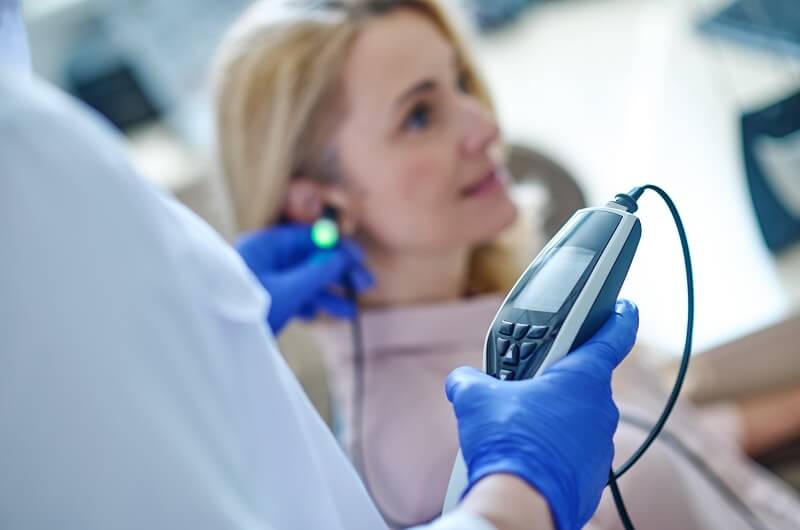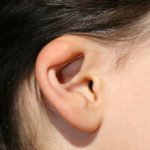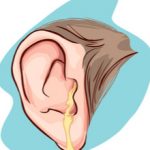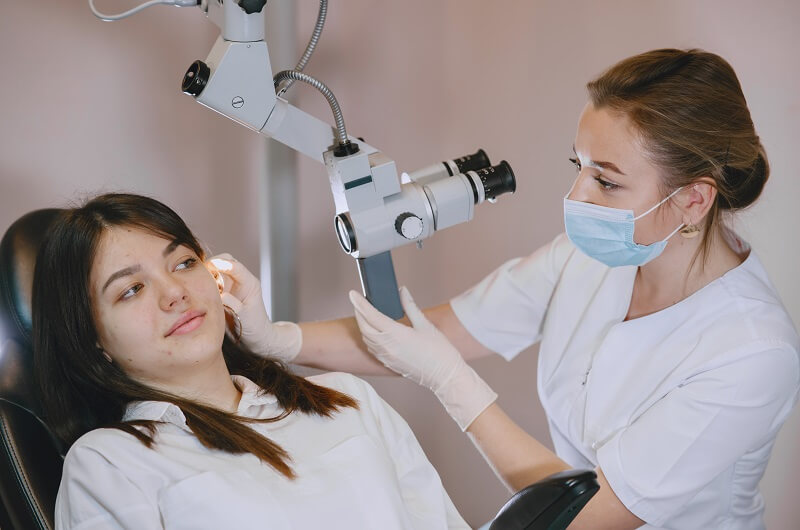Effective Surgical Treatment for a Perforated Eardrum
Most effective and minimally-invasive surgical treatment to improve a perforated or ruptured eardrum
Book Free Appointments With Our Expert Doctors
- Get free consultation for 50+ diseases
- In-person and online consultation with experienced doctors
- Extensive medical assistance throughout your treatment

According to the NABH Norms
No Cuts, No Wounds, Painless*
Insurance Paperwork Support
Web-View
Technology
What is a perforated eardrum?
A perforated or a ruptured eardrum is a condition in which a hole or a tear occurs in the thin tissue that separates the ear canal or eardrum (middle ear). A perforated eardrum can lead to hearing loss and make your middle ear prone to catching infections. A perforated eardrum has a good chance to get healed on its own in a few weeks time if it is not infected. If infected, it requires medical treatment.
Book Your Appointment
Overview of Eardrum
→ excessive ear drainage
→ permanent hearing loss
→ recurrent ear infections
→ chronic ear pain
→ 30% off on diagnostic tests
→ Confidential consultation
→ Single deluxe room
→ Free follow-ups post-surgery
→ 100% insurance claim
→ All Insurances covered
→ No upfront payment
→ No running behind insurance authorities
→ Paperwork by Surgicare team on your behalf
Causes of Eardrum

Infection in the ear

Injured eardrum due to an intense impact such as a blow

Sudden unbearable loud noise

Fluctuation in the air pressure
Symptoms of Eardrum

The perforated eardrum may cause a conductive hearing loss, and in chronic cases.

Yellow discharge from the ear

Infection of the middle or inner ear if exposed to moisture

Intense pain in the ear that does not subside until the treatment

Itchiness in the ear

Fever
Treatment of Eardrum

Diagnosis
An ENT doctor or surgeon can diagnose the perforation of the ear in a physical examination using an otoscope, an instrument that has a magnifier with a light, designed to look inside the ear. Other tests may include:
- Auditory Testing: An audiologist checks a patients’ hearing in each ear, using sounds of varying volume and frequency.
- Computed Tomography (CT scan): A CT scanner uses X-rays and a computer to create images of the ears and surrounding structures.
- Magnetic Resonance Imaging (MRI): Using radio waves in a magnetic field, a scanner creates high-resolution images of the ears and surrounding structures.
Treatment
If the symptoms are not very severe, most eardrums heal within a week’s time. The ENT surgeon is likely to prescribe a few antibiotic ear drops. if the eardrum does not heal by itself, your ENT surgeon may use any of the following procedures to treat the perforated eardrum.
- Tympanoplasty – Tympanoplasty is the most common surgical procedure to treat a perforated eardrum. In this process, the ENT surgeon grafts a patch of your own tissue to close the perforated or ruptured eardrum. Tympanoplasty is done on an outpatient basis and once the process is done, the patient can go home.
- Eardrum patch – In case the eardrum hole or the perforation does not heal on its own, the ENT surgeon may use a paper patch to seal it. The ENT surgeon may use chemicals to treat the eardrum and then apply a patch on the hole.
Why Surgicare ?
Surgicare is COVID-19 safe
our safety is taken care of by thermal screening, social distancing, sanitized clinics and hospital rooms, sterilized surgical equipment and mandatory PPE kits during surgery.
Post Surgery Care
We offer free follow-up consultations and instructions including dietary tips as well as exercises to every patient to ensure they have a smooth recovery to their daily routines.
Medical Expertise With Technology
Our surgeons spend a lot of time with you to diagnose your condition. You are assisted in all pre-surgery medical diagnostics. Our procedures are according to the norms of NABH.
Assisted Surgery Experience
A dedicated Medical Coordinator assists you throughout the surgery journey from insurance paperwork, to free commute from home to hospital & back and admission-discharge process at the hospital.
Frequently Asked Questions
What could pain in the ear possibly indicate?
Ear pain in most cases is caused by an ear infection, such as otitis media. It is an infection of the middle ear. Ear pain could also be caused due to infection in the ear canal which is known as otitis externa.
How can I cure my eardrum perforation?
Most ENT surgeons perform Tympanoplasty to cure an eardrum perforation. Tympanoplasty is performed if the hole in the eardrum is large or if you have a chronic ear infection. Tympanoplasty is a safe surgical procedure and the patient can recover without any major complications.
What are the advantages of modern treatment?
There are several advantages of undergoing advanced treatment for perforated eardrum:
- Improved hearing
- Fast recovery
- Less painful
- Reconstruction of the eardrum
- No post-surgery complications
Is it possible to get ear pain without infection?
In adults, earaches may occur without an infection when air and fluid build-up behind the eardrum causes a feeling of fullness, discomfort and reduced hearing. This is called otitis media with effusion (OME) or chronic otitis media.
How painful is a tympanoplasty?
Tympanoplasty is a surgery that is done to repair a hole in the eardrum. When the doctor begins with the procedure, he will ensure that the patient is under anesthesia. A patient may feel dizzy for a few days after the surgery but the procedure will be painless.
Can I regain hearing after the eardrum is ruptured?
Yes, with proper treatment from an experienced ENT surgeon, you can regain your hearing after the eardrum is perforated. The treatment may include the use of antibiotics or a surgical approach.
How long does a perforated eardrum take to heal?
A perforated eardrum can take anywhere between 2-3 days to a few weeks time to heal with or without any treatment. The duration of the healing process is not definite and can depend from person to person.
What are the complications of perforated eardrum?
The eardrum enables us to hear sounds. Any damage in the eardrum can cause trouble hearing. Usually, eardrum perforation gets healed on its own. The eardrum acts as a barrier and protects the middle and inner ear from any damage from and also prevents water from entering the ear. If the bacteria accumulates or water gets clogged in the ear, it can result in hearing loss. If not treated well on time, hearing loss can be accompanied by purulent discharge and severe earache. Eardrum perforation can also lead to a skin cyst called cholesteatoma. When the debris in the ear canal gets into the middle ear, it causes cholesteatoma. If not treated on time, the condition can damage the middle ear bones and lead to eardrum complications.
Read More
Is tympanoplasty safe?
Tympanoplasty is the surgical procedure to repair a ruptured or perforated eardrum by placing a graft. The goal of tympanoplasty is not just to close the graft by also to aid hearing.
Tympanoplasty is a very safe and effective surgery to eradicate the middle ear problem and also to restore hearing. ENT surgeons rely on the technique to treat ruptured eardrums due to a high success rate. With the advances in medical technologies, a number of grafting materials are available today. A thorough diagnosis of the ear problem and careful placement of the graft and thoughtful planning of the surgery can lead to the paramount success of tympanoplasty.
Tympanoplasty is a very safe surgery and nil to very minimal complications. On rare occasions, tympanoplasty may cause pain in the ear, trouble breathing, facial swelling, and fever. But, if tympanoplasty is performed by experienced ENT surgeons, even the least possible complications can be eradicated and the patient can highly benefit from tympanoplasty surgery.
What to expect after tympanoplasty surgery?
The ENT surgeon is likely to instruct you about how to take care of the ear after tympanoplasty.
- You should avoid blowing your nose.
- You should avoid sneezing with an open mouth.
- You should avoid water from entering the ear.
- You should apply eardrops which are recommended by the doctor.
You may have the following symptoms for almost a week after tympanoplasty surgery.
- A small amount of bloody discharge from the ear
- mild pain in the ear which should get better with medicine
- feeling of fullness in the ear
In many cases, these symptoms disappear within the next few days and the person can get back to normal life without any problem.
Know More About Surgicare ?
All humans deserve equal treatment but everyone cannot afford costly treatments at multispeciality or super-specialty hospitals.
In India, many people don’t even have mediclaim to deal with medical emergencies. Also, there is a lack of experienced professionals to consult for a second opinion in case of surgery. Surgicare & ICU is built keeping in view the above points. It offers surgery and post-surgery critical care.
Surgicare & ICU Hospital is well equipped for all kinds of surgeries and offers one of the best ICU teams of Vadodara to take care of critical patients. It offers help to all those patients who do not have mediclaim but need treatments. Surgicare & ICU offers the opportunity for second opinions.
